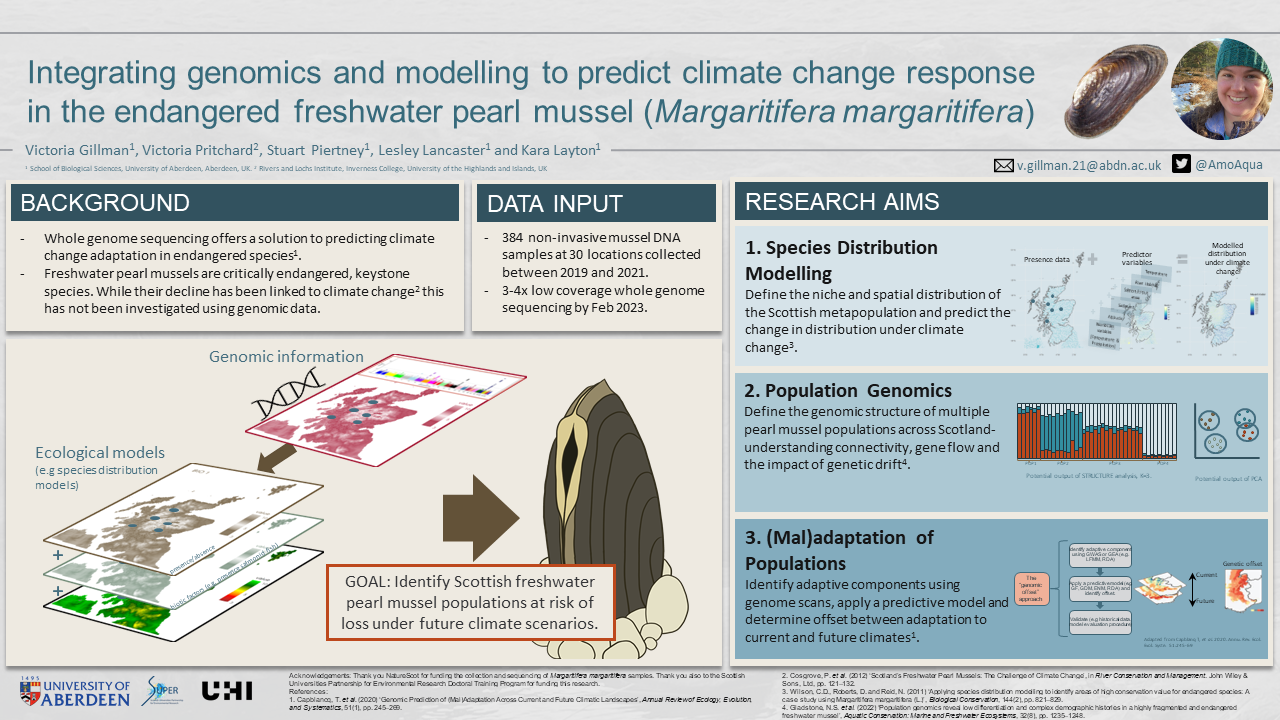Integrating genomics and modelling to predict climate change response in the endangered freshwater pearl mussel
PI:Dr Kara Layton. Other supervisors: Dr Victoria Pritchard, Dr Lesley Lancaster and Dr Stuart Piertney
Abstract
Given the rapid pace of climate change, there is an urgent need to understand adaptive capacity and how threatened species will respond to changes in their environment. Whole genome sequencing offers an opportunity to test for adaptation without prior functional knowledge, with genome scans and association analyses enabling the detection of adaptive variants across climate gradients. By integrating population genomics with ecological modelling, we can determine the mismatch between current adaptive variation and future climate, deemed ‘genomic offset’. The freshwater pearl mussel (Margaritifera margaritifera) is a critically endangered, keystone species and while its decline has been linked to climate change impacts this has never been investigated with genomic data. This project will use low coverage whole genome sequencing data of mussels from 30 Scottish rivers to resolve fine-scale population structure, investigate climate-associated genomic variation along environmental gradients and identify populations at risk of loss under future climate change scenarios.

Poster
